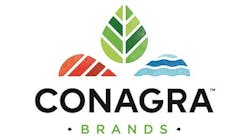| [javascriptSnippet ] |
The FDA today (March 20) proclaimed recent genetically engineered (GMO) apples and potatoes "are as safe and nutritious as their conventional counterparts." And so the public debate begins.
The agency announced it had completed its evaluation for two varieties of apples – together known by the trade name Arctic Apples – created by Okanagan Specialty Fruits Inc. and six varieties of Innate potatoes made by J. R. Simplot Co.
"These … use a new form of genetic engineering, called RNA interference, [which] works by shutting down the ability of RNA to translate DNA into protein in a cell. [It] raises many new, unanswered questions," said Consumer Reports.
"Could be better than organics," said Mischa Popoff, a former USDA contract organic inspector and outspoken proponent of genetically engineered foods – who has written in Food Processing (Who Wants GMO Labeling?).
Okanagan’s Granny Smith and Golden Delicious varieties of apples are genetically engineered to resist browning associated with cuts and bruises by reducing levels of enzymes that can cause browning.
Simplot’s varieties of Ranger Russet, Russet Burbank and Atlantic potatoes, collectively known by the trade name Innate, are genetically engineered to reduce the formation of black spot bruises by lowering the levels of certain enzymes in the potatoes. In addition, they are engineered to produce less acrylamide by lowering the levels of an amino acid called asparagine and by lowering the levels of reducing-sugars. Acrylamide is a chemical that can form in some foods during high-temperature cooking, such as frying, and has been found to be carcinogenic in rodents.
Here's a chunk of the FDA ruling verbatim:
"Foods derived from genetically engineered plants must meet the same legal standards, including safety standards, as foods derived from traditional plant breeding methods. To help developers of foods derived from genetically engineered plants comply with their obligations under the Federal Food, Drug, and Cosmetic Act and FDA regulations, the FDA encourages them to participate in a voluntary consultation process with the agency prior to commercial distribution. As part of its consultation process, both Okanagan, of British Columbia, Canada, and Simplot, of Boise, Idaho, submitted to the FDA a summary of their safety and nutritional assessments."
"The consultation process includes a review of information provided by a company about the nature of the molecular changes and the nutritional composition of the food compared to traditionally bred varieties," said Dennis Keefe, Ph.D., director of the FDA’s Office of Food Additive Safety. “This case-by-case safety evaluation ensures that food safety issues are resolved prior to commercial distribution.”
The FDA says it has no additional food safety questions at this time concerning food from these plant varieties. "It is a company’s continuing responsibility to ensure that food it markets is safe and otherwise in compliance with all applicable legal and regulatory requirements. In certain circumstances, characteristics of these varieties of apples and potatoes that differ from their conventional counterparts may require disclosure to the consumer. Both companies are encouraged to consult with the FDA about potential labeling requirements."
Back to Consumers Union: "An EPA scientific advisory panel on pesticides issued a report in 2014 that stated this technology needs further evaluation in terms of its use for pesticidal purposes. The panel recommended further study of this topic, particularly in people who are sick, immune compromised, children or the elderly.
"Consumers Union is also concerned that FDA has not required labeling of this apple, which is engineered to sit around for significant periods of time without turning brown. Consumers could easily be deceived about the freshness of slices of this apple. FDA says companies should 'consult' with them about labeling, but like with all other genetically engineered food, requires no full disclosure to consumers."
Back to Popoff: "Unlike some GMO crops that incorporate pesticides, the GMO Arctic Apple could, in theory, be grown under organic management with composted fertilizer and holistic pest management, according to the original version of the world’s most-widely adopted organic standards – the USDA National Organic Program."
Coincidentally, in late February, as approval of its apple seemed likely, Okanagan Specialty Fruits announced its own sale to Intrexon Corp. (which uses the URL dna.com) for $41 million. Intrexon calls itself "a leader in synthetic biology … to create biologically-based products that improve the quality of life and the health of the planet."

